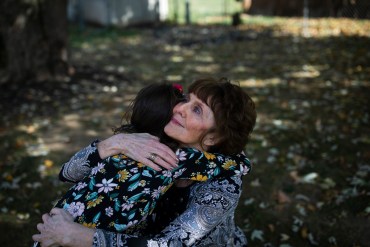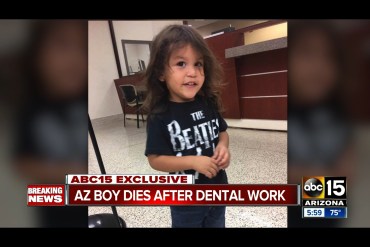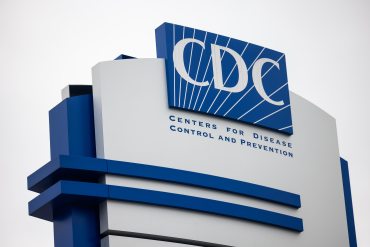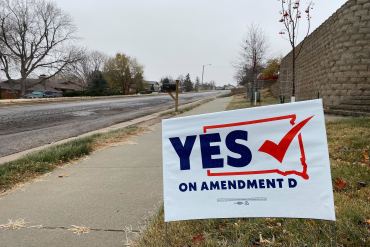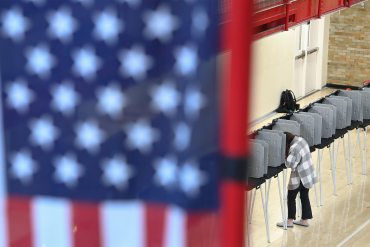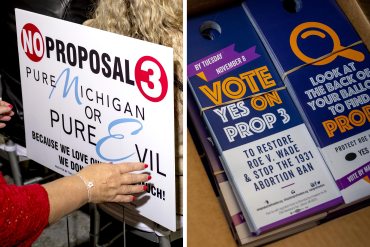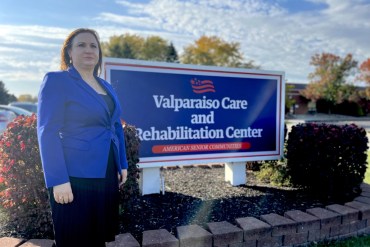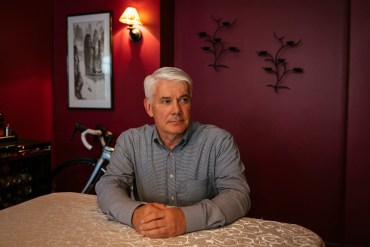A New Use for Dating Apps: Chasing STDs
For contact tracers of sexually transmitted diseases, telephones and text messages have become ineffective. Dating apps increasingly are their best bet for informing people of their exposure risks.
When Malpractice Occurs at Community Health Centers, Taxpayers Pay
Federally funded clinics and their doctors are protected against lawsuits by federal law, with taxpayers footing the bill. The health centers say that allows them to better serve their low-income patients, but lawyers say the system handcuffs consumers with a cumbersome legal process and makes it harder for the public to see problems.
Trickle of Covid Relief Funds Helps Fill Gaps in Rural Kids’ Mental Health Services
Only a sliver of the funding given to state, local, and tribal governments through the American Rescue Plan Act has been steered to mental health nationwide, but mental health advocates and clinicians hope the money it provides will help address gaps in care for children. In Appalachian Ohio, the funding is helping expand services.
Schools, Sheriffs, and Syringes: State Plans Vary for Spending $26B in Opioid Settlement Funds
The cash represents an unprecedented opportunity to derail the opioid epidemic, but with countless groups advocating for their share of the pie, the impact could depend heavily on geography and politics.
How Banks and Private Equity Cash In When Patients Can’t Pay Their Medical Bills
Hospitals strike deals with financing companies, generating profits for lenders, and more debt for patients.
How Optimism Can Close the Medicaid Coverage Gap
Low-income residents in states that haven’t expanded Medicaid are in a tough spot: They don’t qualify for the subsidies that people with slightly higher incomes get to buy marketplace plans because of a glitch in the federal health law. But a court decision last year makes it easier for them to make good-faith estimates of a pay increase, and there is no financial penalty if they don’t hit that figure.
Medicare Plan Finder Likely Won’t Note New $35 Cap on Out-of-Pocket Insulin Costs
In August, Congress approved a $35 cap on what seniors will pay for insulin, but that change came too late to add to the online tool that helps Medicare beneficiaries compare dozens of drug and medical plans. Federal officials say beneficiaries who use insulin will have the opportunity to switch plans after open enrollment ends Dec. 7.
Private equity firms have shelled out almost $1 trillion to acquire nearly 8,000 health care businesses, in deals almost always hidden from federal regulators. The result: higher prices, lawsuits, and complaints about care.
Thousands of Experts Hired to Aid Public Health Departments Are Losing Their Jobs
As the covid-19 pandemic raged, an independent nonprofit tied to the Centers for Disease Control and Prevention hired an army of seasoned professionals to fill the gaps in the country’s public health system. Now, the money has largely run out, and state and local health departments are again without their expertise.
South Dakota Voters Approved Medicaid Expansion, but Implementation May Not Be Easy
South Dakotans voted to expand the state’s Medicaid program to cover thousands of additional low-income residents. But as other conservative states have shown, voter approval doesn’t always mean politicians and administrators will rush to implement the change.
Abortion Issue Helps Limit Democrats’ Losses in Midterms
Although control of Congress was still undecided Wednesday, Republicans seemed poised to take power in the House, while the fate of the Senate remained too close to call. Economic issues were at the top of voters’ minds, but abortion access also played a large role in their decisions.
Listen: With Abortion Rights on the Ballot in Michigan, Women Tell Their Stories
Women who need abortion care come to Michigan from surrounding states that already have banned the procedure. A clinic in suburban Detroit allowed a reporter to interview patients, doctors, and nurses to understand what is at stake as voters decide whether to guarantee abortion access in the Michigan Constitution.
Supreme Court to Hear Nursing Home Case That Could Affect Millions
An Indiana man’s family sued a state-owned nursing home for alleged mistreatment. A U.S. Supreme Court decision in the case could determine the right of many Americans to sue government agencies.
For Republican Candidates, Talk About Moms and Babies Is a Thorny Issue
The abortion issue looms large over the midterm elections, and some in the Republican Party, long associated with efforts to restrict access, are looking to reassure voters they have women’s health in mind.
Centene Showers Politicians With Millions as It Courts Contracts and Settles Overbilling Allegations
Centene, the largest Medicaid managed-care company in the U.S., has thrown more than $26.9 million at political campaigns across the country since 2015, especially focused on states where it is wooing Medicaid contracts and settling accusations that it overbilled taxpayers. Among its tactics: Centene is skirting contribution limits by giving to candidates through its many subsidiaries.
Hospital Investigated for Allegedly Denying an Emergency Abortion After Patient’s Water Broke
Federal officials have ordered the probe after reports that a woman whose water broke at 18 weeks could not get medical care recommended by her doctors to end the pregnancy because hospital officials were concerned about Missouri’s strict abortion law.
What Looks Like Pot, Acts Like Pot, but Is Legal Nearly Everywhere? Meet Hemp-Derived Delta-9 THC
The 2018 farm bill that legalized hemp created a loophole for an unregulated copycat of marijuana. A form of delta-9 THC — the psychoactive substance in pot — doesn’t face the same laws and regulations as marijuana because it comes from hemp. The drug is poised to upend the cannabis industry.
This Open Enrollment Season, Look Out for Health Insurance That Seems Too Good to Be True
Complaints about misleading health insurance marketing are soaring. State insurance commissioners are taking notice. They’ve created a shared internal database to monitor questionable business practices, and, in the future, they hope to provide a public-facing resource for consumers. In the meantime, consumers should shop wisely as open enrollment season begins.
$38,398 for a Single Shot of a Very Old Cancer Drug
Lupron, a drug patented half a century ago, treats advanced prostate cancer. It’s sold to physicians for $260 in the U.K. and administered at no charge. Why are U.S. hospitals — which may pay nearly as little for the drug — charging so much more to administer it?
A Billing Expert Saved Big After Finding an Incorrect Charge in Her Husband’s ER Bill
A medical billing specialist investigated her husband’s ER bill. Her sleuthing took over a year but knocked thousands of dollars off the hospital’s charges — and provides a playbook for other consumers.






